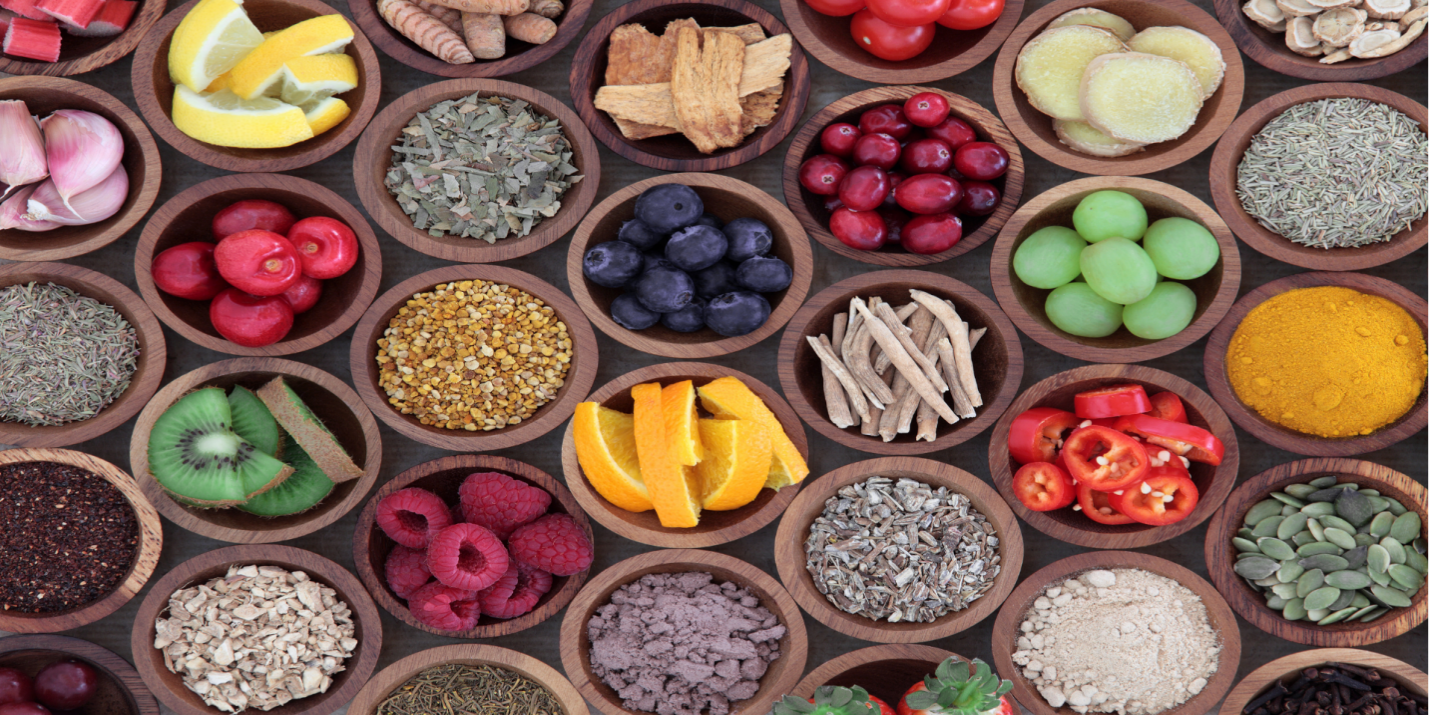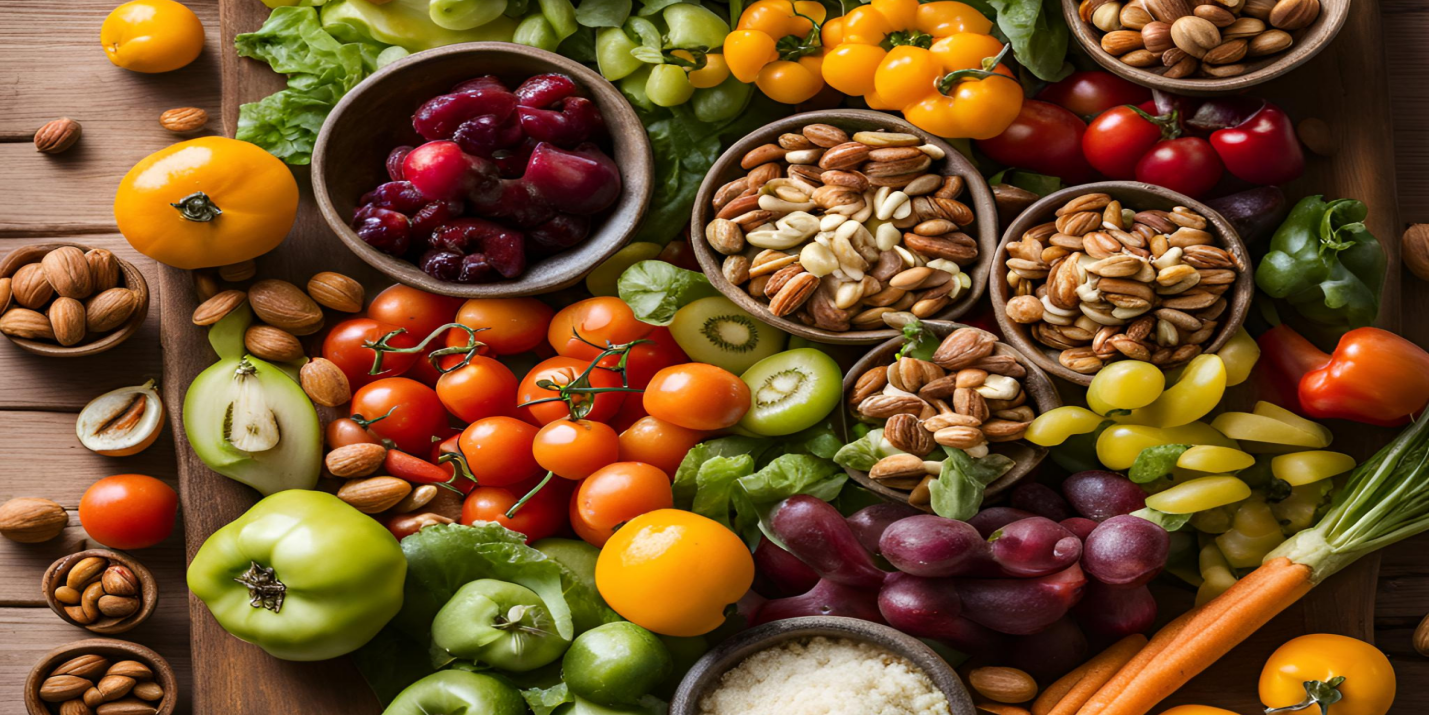Advertisement
How to Embrace a More Sustainable Diet
Oct 14, 2024 By Madison Evans
Sustainable eating is beneficial to the planet and is good for you, too. As concern for climate change and the degradation of our natural resources grows, people seek alternative ways to contribute positively. In a sense, embracing a more sustainable diet may be considered one of the most effective means of reducing your ecological footprint.
Therefore, it will incorporate more sensible tactics and advice than minor changes in habits that might just push one to start with plant-based meals or eliminate food wastage altogether. Taking up sustainable practices places you on the way to a healthy future while allowing you to relish the benefits of eating healthy.

Advantages of a Healthy Diet
Carbon Footprint Will Decrease: By cutting back on resource-intensive foods like meat and dairy, you'll significantly lower greenhouse gas emissions. Plant-based diets use fewer natural resources, reducing the environmental strain caused by food production.
Biodiversity Support: A diet rich in diverse, plant-based foods helps protect ecosystems and promote agricultural diversity. By choosing these foods, you contribute to the preservation of vital species and habitats, ensuring long-term ecological balance.
Health as Good as Gold: Unprocessed, plant-based foods are nutrient-rich and promote overall physical health. They can help reduce the risk of chronic diseases such as heart disease, diabetes, and obesity, contributing to a longer, healthier life.
Reduced Food Waste: Thoughtful meal planning and reusing leftovers help reduce the amount of food ending up in landfills, which in turn cuts down on methane emissions. This not only saves money but also supports environmental sustainability.
Ethical Consuming: Sustainable diets prioritize ethical considerations such as fair trade, humane farming practices, and environmental stewardship. By eating consciously, you help support responsible producers and promote a more just food system.
Steps to a Sustainable Diet
More plant-based food: So, enjoy fruit and vegetables, legumes, and grains. These foods are energy-dense but have a much more benign environmental effect than meat and dairy.
Meatless Meals: Include meatless meals in your daily diet. The following are all plant-based sources of protein: tofu, lentils, chickpeas, and tempeh.
Buy locally: Shopping at farmers' markets or joining a CSA directly supports agriculture in your area because locally-produced foods do not have to be transported.
Pay attention to what's in season: By buying foods at their best during the season, you support local agriculture and receive fresher, more nutrient-dense products.
Lowering your intake of meat and dairy does not mean elimination. You can start by lowering serving sizes or substituting red meat with chicken, fish, or plant-based products. You may even switch to plant-based almond, soy, or oat milk.
Sustainable Source Seafood: The Marine Stewardship Council (MSC) is a label for seafood that shows how the fish was captured sustainably. This preserves the health of marine ecosystems.
Waste Reduction: Plan your meals, buy what you need, and store it right so the food won't quickly go bad. Get creative with leftovers and turn them into other dishes like soups, stews, or even stir-fries.
Organic and fair-trade products: Use organic produce and fair-trade products as much as possible. These were grown and harvested using better environmental practices, and the farmers were paid fairly.

- Whole foods, not processed: These are highly processed foods often encountered with plenty of packaging that requires more energy to manufacture. Fresh fruits, vegetables, and grains mean less waste and a healthier meal on the table.
- Grow your food: Start growing some food at home, no matter how smallherbs on your windowsill, for exampleand break free from dependence on big agricultural systems. This also saves food transportation. For one, such locally grown food is often fresher and tastier.
Sustainable Eating on a Budget
Shopping in Bulk
- It reduces wasted packaging, which is often cheaper than the regular package.
- Buy dry goods like rice, lentils, or grains.
- Take your reusable containers with you to the bulk food stores.
- Stock up and store the bulk items so you won't waste them.
Cooking at Home
- You control it and where you make better choices.
- Plan your meals and cook in bulk to save time and energy.
- Spend less on processed, packaged, and rich ingredients to make healthy, low-impact meals.
- Prepare meals to combat the urge to go out to take out.
Shop Seasonally and Locally
- Seasonal, local, and preferably organic produce is often cheaper, fresher, and less resource-intensive.
- Shop for fruits and veggies only in season to save money.
- Buy deals at farmers' markets or your local grocery store.
- Store excess seasonal produce by freezing or canning.

Practical Tips to Begin a Sustainable Diet
- Meal Planning: Make a meal plan, so you only buy what you will consume before it becomes useless. Find creative ways to use leftovers for soups, stir-fries, and other meals.
- Grow Your Food: Growing a pot of herbs on your balcony is a giant step towards eliminating the necessity of using energy to transport and package your food. It also saves you money.
- Shop with Reusable Bags: To avoid more plastic, take reusable bags when shopping. You can also purchase reusable produce bags or jars in bulk.
- Buy in Bulk: Buying in bulk avoids packaging waste and saves some pennies. Substantial amounts of rice, beans, and grains can be bought in bulk, thus preventing a lot of packaging.
Conclusion:
Taking on a sustainable diet could be the little thing you do to help save the health of a planet and your own. Whether by reducing your meat intake, growing some vegetables in your house, or just being more conscious about your food decisions, it adds up.
There are three ways to achieve it: making eco-friendly food choices, supporting ethical farming practices, and minimizing food wastage. These can all reduce an individual's environmental footprint and better serve future generations with a healthy, sustainable food system. Every little step in your daily habits can eventually add up to make a difference in creating a sustainable future.







